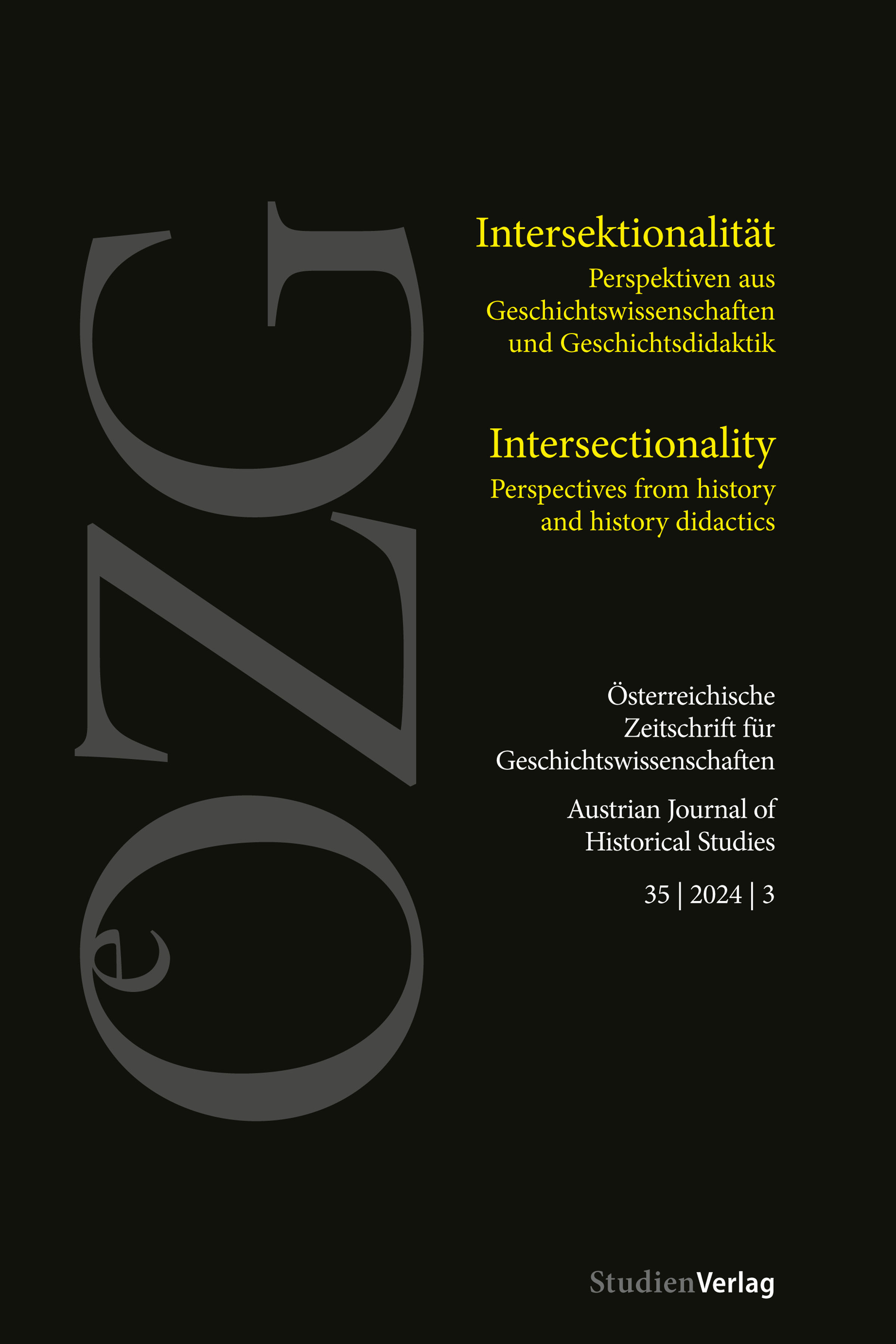Editorial. Potentials and challenges of intersectionality in history didactics and historical studies
DOI:
https://doi.org/10.25365/oezg-2024-35-3-1Keywords:
intersectionality, history didactics, historical studies, race, gender, queer, class, postcolonial theoryAbstract
How is intersectionality currently used as a dimension of analysis in historical studies and history didactics?
Gender studies, postcolonial approaches, queer and disability studies, inequality research and other fields of research that are closely linked to history and history didactics have been using intersectionality as a theoretical, methodological and content-related perspective for some years now. However, the discussion about the interaction of different dimensions of social inequality such as gender, class and race has a longer tradition and has been theorized and empirically substantiated by Black Feminism since the 1970s. This special issue aims to contribute to further establishing intersectionality as a dimension of analysis in historical studies and history didactics. In line with the multi-layered concept of intersectionality, the contributions focus on case studies from different historical periods and from history didactics. The central question is what advantages and disadvantages result from the application of intersectionality as a research perspective, method and theory for empirical historical and historical didactic research.
Downloads
Published
How to Cite
Issue
Section
License
Copyright (c) 2024 Austrian Journal of Historical Studies

This work is licensed under a Creative Commons Attribution 4.0 International License.


